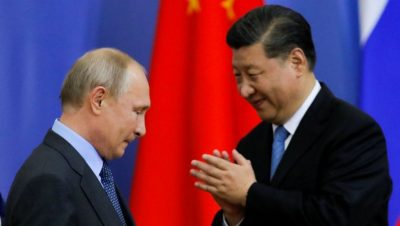Could The Shanghai Cooperation Organization (SCO) Contribute to Resolving the Kashmir Crisis?

The onset of the latest Kashmir Crisis following India’s “Israeli”-like unilateral moves there last week have raised the question among many in the Alt-Media Community of whether the SCO could help mediate a solution between New Delhi and Islamabad, but the fact of the matter is that the organization would be utterly useless in doing so even if it had the proper mandate because its members could just engage in behind-the-scenes diplomacy without having to make a public spectacle about it on that platform.
***
The idea is that Russia and China, which have historically been closer to India and Pakistan (both of which are member states of the SCO) respectively, could join forces in somehow encouraging their regional partner of choice to moderate their positions and therefore reach some sort of a “compromise” on the future status of the disputed region. This suggestion might be well intended, but it reveals that those making it are unaware that the UNSC previously mandated that a plebiscite be held there, something that India has refused to do for over seven decades already.
That’s the only solution available that would follow international law, but even if it wasn’t, the notion that Russia and China exercise such influence over India and Pakistan that they could successfully compel them to “compromise” is patently false. Both countries are independent states, not colonized territories, and neither Moscow nor Beijing can get either of them to change their views towards Kashmir just by incessantly talking about the issue. Not only that, but the SCO doesn’t allow member states to bring their bilateral problems to the platform, and while the issue is veritably a multilateral one by its very nature (it not only involves China via Aksai Chin, but has also seen the official involvement of the UNSC), it’s unlikely that the organization would allow it to be discussed under its aegis.
After all, the SCO focuses on cooperation on issues of shared security (and recently, economic) interests, not on any problems between its member states. Bringing up the Kashmir Conflict could undermine its working efficacy, though that’s probably already the case nowadays as it is after what just happened last week. Anyhow, publicly talking about Kashmir on the SCO platform wouldn’t accomplish anything other than getting each side to once again reiterate their positions towards this issue. If the intent in proposing the SCO’s involvement in resolving this dispute is to get Russia and China to mediate it along the lines of what was previously described at the beginning of this analysis, then the requested behind-the-scenes diplomacy could happen without making a public spectacle of it, and might already quietly be in the process of occurring.
*
Note to readers: please click the share buttons above or below. Forward this article to your email lists. Crosspost on your blog site, internet forums. etc.
Andrew Korybko is an American Moscow-based political analyst specializing in the relationship between the US strategy in Afro-Eurasia, China’s One Belt One Road global vision of New Silk Road connectivity, and Hybrid Warfare. He is a frequent contributor to Global Research.

